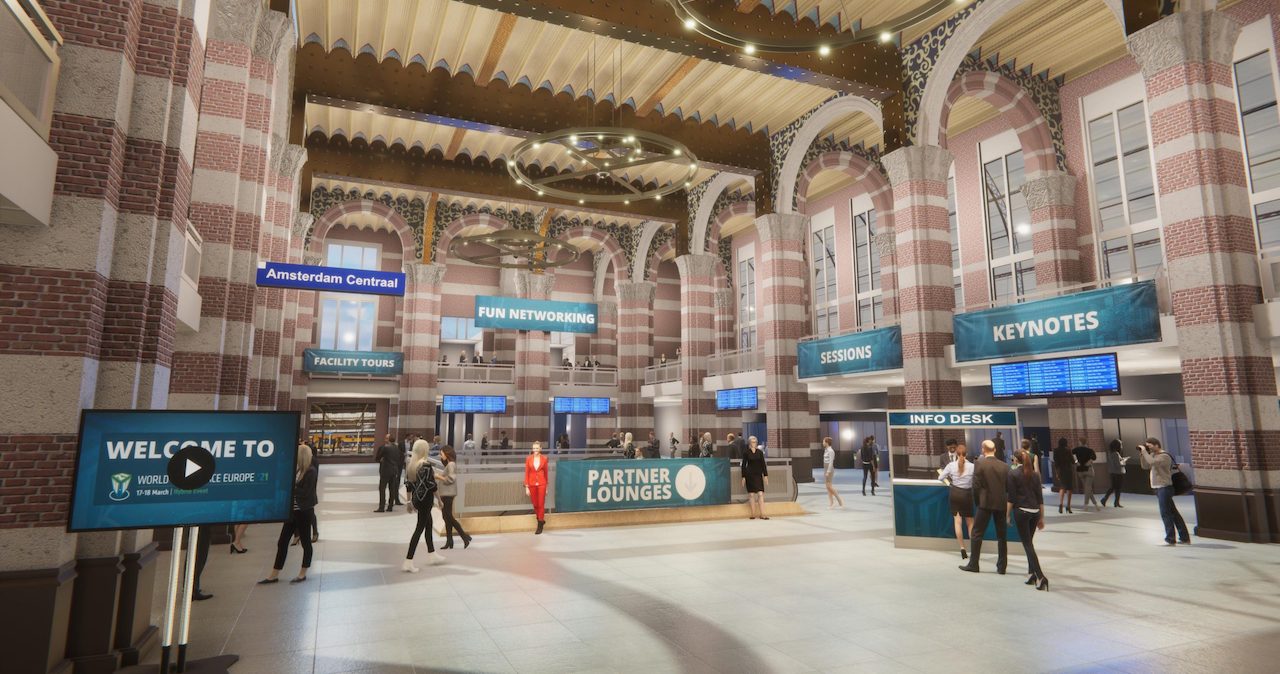It’s not easy to turn a blind eye to someone referred to in the media as Digital Jesus or Rock ‘n’ Roll Plato, especially when they enter the stage looking like, well, Digital Jesus or Rock ‘n’ Roll Plato. Yet, when Anders Indset began talking at World Workplace Europe 2021, it quickly became evident why he is renowned as one of Europe’s leading business philosophers. When he talks, you pay attention.
Indset, who was placed on the Radar 2018 as one of 30 Global Thinkers ‘most likely to shape the future of how organisations are managed and led’, believes we have collectively turned into leaders in our own right. “We have tuned into the art of critical thinking. Cocreation and collaboration are skills needed in leaders of the future,” he added.
In many cases, things are going to look and feel different when we return to work. This is especially for larger organisation adopting a hybrid work. Indset believes we should be honest with one another and admit that pandemic caught us off guard. “We need to show vulnerability, for with vulnerability comes strength,” Indset said.
The future of the office
This leads us to the latest unavoidable buzz-phrase across the workplace industry: hybrid working, where workers split their time between home and the office. Harold Coenders, partner and director at Colliers International Occupier Services, took us through the strategies for employee happiness and how to best optimise corporate real estate in the post-Covid office.
He confirmed much of what we’ve already heard and suspected over the past 11 months. “The main reason we’ll go back to the office is to do the things we cannot do at home,” he said. He was clear that a trip to the office will become more like an event. Much like a planned experience – you buy a ticket, and it’s more fun with friends. He went as far as suggesting that a trip to the office will feel much like a trip to the pub, something many of us can get on board with.
Coenders said: “Workplace booking systems are going to play a key role in driving efficiency and allowing business leaders to understand their employees needs and wants. It will also paint a picture of how offices are being used. Data can then help support their business decisions”.
Workplace experience
It was clear listening to Coenders that workplaces will need to be more flexible. In the past it would be designed for every day of the week. Now it must take into account different teams visiting on different days.
Claus Christensen, Workplace of the Future Strategy Leader, EMEIA & Nordics at EY, said his organisation is prototyping a workplace experience platform to support employees in finding a colleague and booking a place where to meet and collaborate. He also revealed that EY continues to invest in a regional hub model which has increased space efficiency over the past five years, supporting its goal to be net zero by 2025 globally.
Listening to the speakers, it was clear the world of work won’t ever be the same. Yet as the day concluded, I thought back to something philosopher Indset said in his opening monologue. “The phrase ‘business as usual’ has become historical. We are not going back to normal. We are striving towards something new.”
While having opportunities ahead like this is exciting and intriguing, I can’t help but feel that many of us are longing for a bit of the old normal.
Follow our ‘Sector News’ for regular event recaps from the FM and workplace sector.








